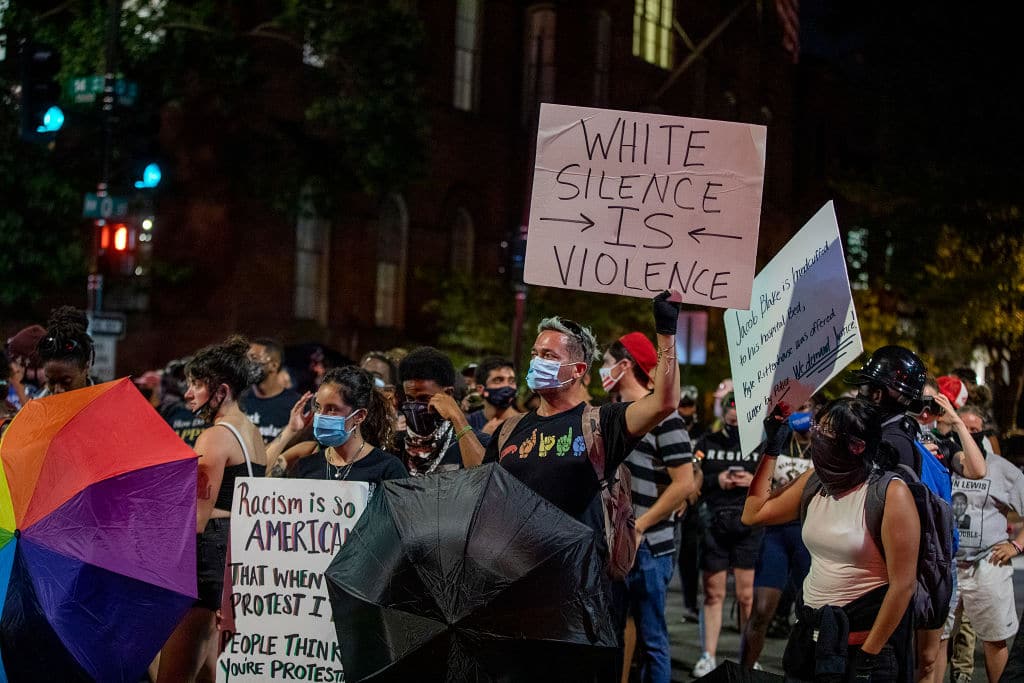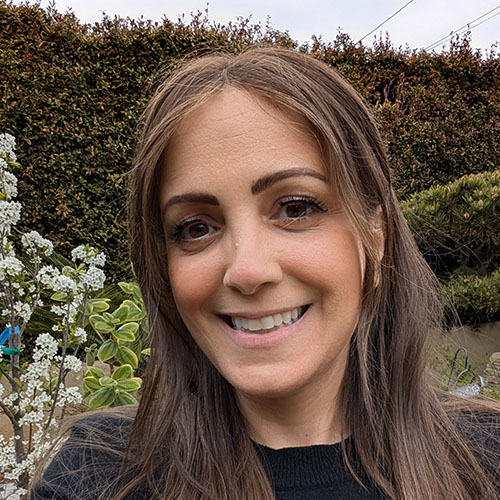
I joined “The Facebook,” as it was then known, a few months after it launched in February 2004, but it wasn’t until last week that I had my first Facebook-related panic attack.
It started with a video. On Aug. 25, a group of Black Lives Matter protesters, most of them white, entered the outdoor seating area of a restaurant in Washington, D.C., and demanded customers raise their fists in solidarity while they chanted, “White silence is violence!” When one woman, Lauren Victor, refused to do so, the protesters circled her. They screamed and raised their fists while inching closer to Victor, who was seated against a wall, seemingly overwhelmed as she tried to get a word in. The more she tried to explain herself, the more they screamed in her face. I immediately had a visceral reaction and had trouble breathing. I felt like I was back in Tehran.
Several years ago, I began to speak with a therapist because I was depressed after the birth of our first son. We talked about postpartum blues, but she eventually diagnosed me with post-traumatic stress disorder stemming from my childhood in post-revolutionary Iran, where the consequences of disobeying oppressive laws were dire and the daily threat of dying from Iraqi missile attacks rendered me a traumatized survivor of the Iran-Iraq War.
I believe most people would find raised fists and being screamed at disturbing, but for me, these things take me back to the playground in Iran in the late 1980s, when I and hundreds of other hijab-clad little girls were forced to stand in uniform lines, raise our fists and scream, “Death to America! Death to Israel!” Apparently, my chants weren’t enthusiastic enough, because my teacher often beat me with a ruler after “recess” was over.
As a result, these days, I will never let anyone force me into chanting anything. After all that screaming in Iran, I know I have a choice if I want to sit somewhere quietly in this country, whether or not I agree with a cause. And yet, there are many things that happen in Iran that aren’t supposed to happen in the United States, including what happened to that helpless woman in a restaurant who was confronted by people trying to control her thoughts and words.
These days, I won’t let anyone force me into chanting anything.
Ironically, Victor told The Washington Post on Aug. 25 she had joined the Black Lives Matter protests for weeks but she didn’t like being coerced into showing support while at a restaurant. “It didn’t feel right,” she said, but added, “I’m very much with them. I’ve been marching with them for weeks and weeks and weeks.”
At a press conference on Aug. 26, Washington, D.C., Mayor Muriel Bowser said, “What I saw in those videos was highly inappropriate. It was likely against the law if they were on private property but more importantly, I don’t think it had anything to do with demands for social justice.” She added, “I also don’t think that D.C. residents would be bullied out of living their everyday lives.”
This may be one extreme incident, but it shines a light on a progression of thought control that, in the mayor’s words, can bully us right out of our everyday lives. It makes me wonder whether the slogan “White silence is violence” is, indeed, an effort to coerce and shame people into saying and doing the “right thing.”
With the increase in online trolling and cancel culture, some people are now afraid of saying the wrong thing, whether on social media or on a private phone call, lest it be recorded and publicly released, potentially ruining careers and social connections.
I understand that fear — the fear of saying the wrong thing, and that’s bad enough. But the fear of not saying something? That is an invasion of my personal space that reminds me of a past I would much rather forget.
Tabby Refael is a Los Angeles-based writer, speaker and activist.


































 More news and opinions than at a Shabbat dinner, right in your inbox.
More news and opinions than at a Shabbat dinner, right in your inbox.